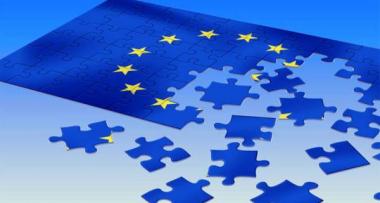EU Integration and Differentiation for Effectiveness and Accountability – EU IDEA

The recent evolution of the European Union’s politics and policies has demonstrated that differentiation can no longer be treated as an anomaly in the integration process. This has posed a key set of questions to academics and policy-makers on whether, how much and what form of differentiation is not only compatible with but also conducive to a more effective, cohesive and democratic EU. The project EU IDEA – Integration and Differentiation for Effectiveness and Accountability – addresses these issues and tries to find viable solutions. EU IDEA puts together 15 EU and extra-EU partners in a joint research and dissemination effort coordinated by IAI, starting from January 2019 and lasting for three years.
The project examines the historical and philosophical foundations of differentiation, within and outside the EU (WP1); it addresses differentiation in relation to governance and accountability (WP 2); constitutionalisation and European identity issues (WP 3); it analyses the EU’s practice of differentiation in key policy areas such as the Economic and Monetary Union and the single market, the foreign, security and defense policy, and the area of freedom, security and justice, including migration policy (WP 4-5-6), keeping a special focus on the implications of Brexit (WP 7); and it investigates the different national visions as regards differentiation, both at the level of political elites and citizens (WP 8).
The results of the research will be used to define the criteria – institutional, political and social – to analyse future scenarios of differentiated integration (or disintegration) and to draw up recommendations to European and national institutions (WP 9).
Funding: European Union – Horizon 2020
Publications: see Related contents (below) and the EU IDEA Papers series.
- Open access: Nicoletta Pirozzi, Matteo Bonomi and Sandra Lavenex (eds), Special Issue: “Governing Differentiation and Integration in the European Union: Patterns, Effectiveness and Legitimacy”, in The International Spectator, Vol. 57, No. 1 (March 2022), p. 1-178, https://www.tandfonline.com/toc/rspe20/57/1
- Open access: Sandra Lavenex and Philipp Lutz, "Third Country Access to EU Agencies: Exploring Spaces for Influence", in Journal of Common Market Studies, 5 February 2023, https://doi.org/10.1111/jcms.13455
Related content
-
Publication27/09/2023
The future of the EU-UK relationship: from bad to worse to catastrophic?
leggi tutto -
Publication27/09/2023
Differentiated Integration as a Conscious Policy Choice?
leggi tutto -
Publication27/09/2023
What type of differentiation in EU economic governance after COVID?
leggi tutto


